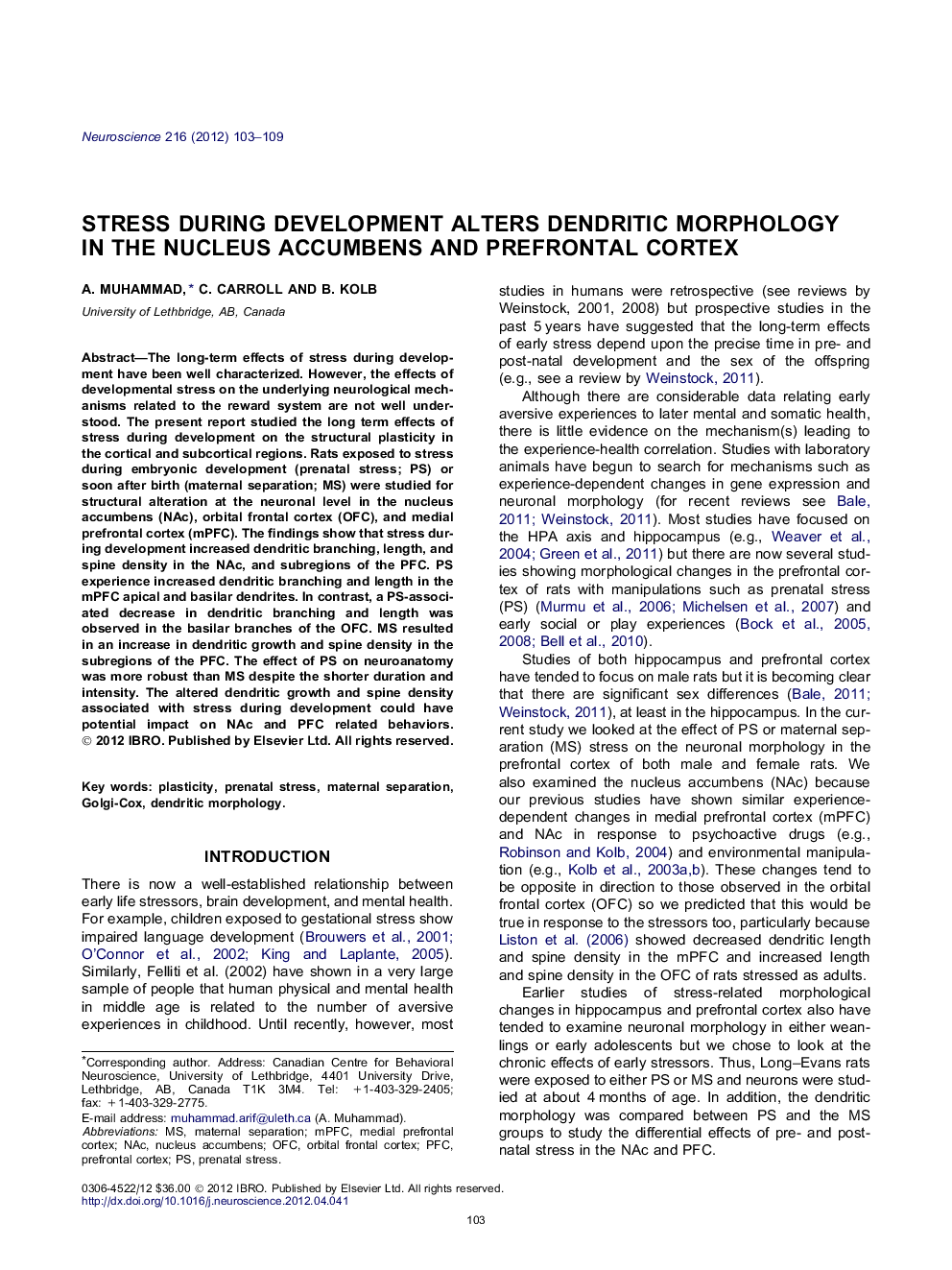| Article ID | Journal | Published Year | Pages | File Type |
|---|---|---|---|---|
| 4338402 | Neuroscience | 2012 | 7 Pages |
The long-term effects of stress during development have been well characterized. However, the effects of developmental stress on the underlying neurological mechanisms related to the reward system are not well understood. The present report studied the long term effects of stress during development on the structural plasticity in the cortical and subcortical regions. Rats exposed to stress during embryonic development (prenatal stress; PS) or soon after birth (maternal separation; MS) were studied for structural alteration at the neuronal level in the nucleus accumbens (NAc), orbital frontal cortex (OFC), and medial prefrontal cortex (mPFC). The findings show that stress during development increased dendritic branching, length, and spine density in the NAc, and subregions of the PFC. PS experience increased dendritic branching and length in the mPFC apical and basilar dendrites. In contrast, a PS-associated decrease in dendritic branching and length was observed in the basilar branches of the OFC. MS resulted in an increase in dendritic growth and spine density in the subregions of the PFC. The effect of PS on neuroanatomy was more robust than MS despite the shorter duration and intensity. The altered dendritic growth and spine density associated with stress during development could have potential impact on NAc and PFC related behaviors.
► Stress during development increased dendritic branching, length, and spine density in the nucleus accumbens. ► Prenatal stress increased dendritic branching and length in the mPFC but decreased it in the OFC. ► Maternal separation increased dendritic growth and spine density in the mPFC and OFC.
